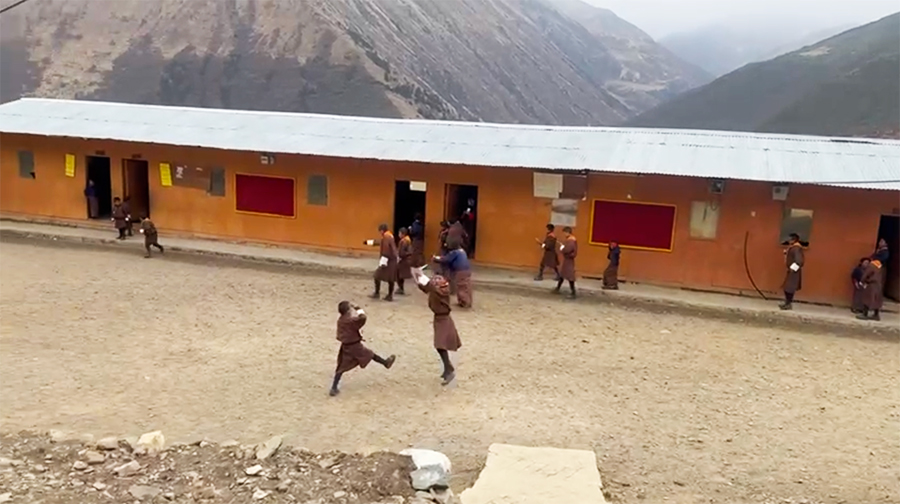 With a warmer climate in the highlands now, students of Lingzhi Lower Secondary School might have an extended academic year. Residents and local leaders proposed an early opening and a later closing of the school which the recent Thimphu Dzongkhag Tshogdu endorsed. With warmer temperatures and less severe winters, residents believe extending the academic year could improve the academic performance of their children.
With a warmer climate in the highlands now, students of Lingzhi Lower Secondary School might have an extended academic year. Residents and local leaders proposed an early opening and a later closing of the school which the recent Thimphu Dzongkhag Tshogdu endorsed. With warmer temperatures and less severe winters, residents believe extending the academic year could improve the academic performance of their children.
Currently, the academic year for Lingzhi Lower Secondary School runs for about 7 months from mid-March to mid-November. This is about one month less compared to schools in warmer places in the country.
The new proposal suggests opening the school from 1st March and closing at the end of November to improve learning outcomes.
According to Lingzhi Gup, the need for teachers to travel to Thimphu for training and meetings further shortens the already limited academic period.
Wangdi, Lingzhi Gup said “Students in grades six and eight are required to take board examinations, but only 30 to 40 percent pass the exams. Many parents believe the limited school hours may be a significant factor contributing to this low success rate.”
The Intergovernmental Panel on Climate Change’s Sixth Assessment Report published between 2021 and 2023 stated that mountains in Asia will likely keep getting warmer because of climate change. The higher the mountains, the faster the temperature was expected to rise.
Moreover, according to NCHM’s latest Climate Change Projection Report, the high mountain glaciers located in Gasa, Bumthang, Wangdue Phodrang, Lhuentse, Thimphu and Haa are projected to melt faster due to rising summer temperatures.
Lingzhi residents also said that climatic conditions have changed, with snowfall now melting within days instead of months as in the past.
Pema Gyeltshen, a parent said “Due to climate change, we do not experience too much cold as in the past. Therefore, I think it would be helpful for our children if the school could be opened early and closed late. They will be able to study better with long duration in school.”
The school currently has 60 students and 10 teachers. Teachers hold extra classes on weekdays, weekends, and holidays to make up for the lost time.
Tshering Duba, Officiating Principal of Lingzhi Lower Secondary School said “We currently take extra classes after schools, and on Saturdays and Sundays to cover the syllabus. If the timing could be changed, we will not have to do it.”
Additionally, the gup proposed conducting board examinations at the school itself. Currently, students travel for five days to Thimphu to sit for exams.
While parents and teachers support the idea, education officials expressed concerns over the security of delivering question papers to the remote gewog.
The Dzongkhag Tshogdu decided to submit both the proposals to the education ministry for approval.
Well, the signs of climate change are no longer distant forecasts; they are part of daily life in Lingzhi. For this community, adapting to a warming world means rethinking traditions, including how and when their children go to school.
Namgay Dema
Edited by Kipchu










